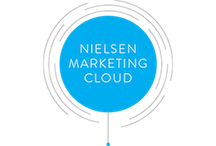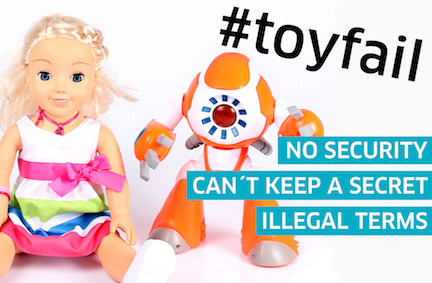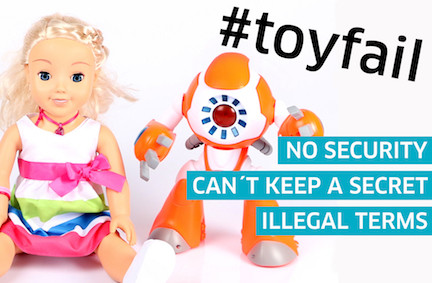Newsroom
Program Areas
-
Blog
Our Next President: Also Brought to You by Big Data and Digital Advertising
How the Trump campaign used big data to elect a president.
The ease of promoting and profiting from fake news (link is external), the use of social media to spread disinformation and twist the truth and the ability to microtarget voters on all their devices reveal how political campaigns and special-interest groups are taking full advantage of the “Big Data”-driven digital marketing system that Google and Facebook have helped unleash. Campaigns now have needle-in-the-haystack capabilities, provided by commercial marketing and media companies, to find and motivate an individual voter. The Trump team (link is external), for example, was able to identify someone from rural America who felt “disenfranchised (link is external),” had not voted in recent elections (and didn’t show up in polls as a likely voter), and then use a data-and-digital-concocted brew to trigger emotions and behavior (link is external). Behind the digital curtain that informs and entertains is a commercial surveillance system whose function until recently has been primarily to sell us junk food (link is external), credit cards and retail products (link is external). But in 2016, the system was fully deployed for political gain. Just take a look at the techniques used by the Trump, Clinton, Sanders (link is external) and other political campaigns that describe how they reached and influenced voters. They are right out of the digital advertisers playbook: IP address (link is external) targeting, geofencing (link is external), pixel profiles (link is external), Data Management Platforms (DMPs) (link is external), algorithms (link is external), data onboarding (link is external), moment scoring (link is external), header bidding (link is external), and programmatic advertising (link is external). Electoral campaigns — from all sides — are fusing cookies (link is external) (data files placed on our web browsers) with information gathered by consumer data companies (link is external) along with our voter files (link is external), which illustrates how our commercial pursuits and political interests are being merged today. Advances in the best way to use all the information routinely captured and analyzed about us, and which has been greatly expanded by our use of mobile phones and apps, have helped companies to create highly detailed personal dossiers that merge our online and offline information, make predictions about how we — or others like us — will respond, and then orchestrate desired behaviors. Google boasts to its advertisers, for example, that it can help them connect with us in a “micromoment (link is external)” — just at the point when we may make some decision. Facebook, for its part, assures marketers they can use its system to influence the decisions of “real people (link is external).” There is little standing in the way of a Trump, Clinton or any other political effort from easily acquiring access to the huge reams of personal information now available (link is external) through commercial data companies, sold by publishers and online enterprises (link is external) and used to target us (link is external) when we log on to social media such as Facebook. The digital marketing and data industry has largely been immune from any regulation under the Obama administration, either on consumer data collection practices or business operations. The US is still one of the only advanced-economy countries (link is external) without comprehensive privacy legislation (link is external), and what little we have is already under threat (link is external). For the vast majority of Americans, there is practically no legal way to turn off or stem the flow of their information. The government’s “hands-off” approach to how Facebook, Google and the rest of the digital marketing industry operate has helped unleash powerful and unaccountable forces that helped elect our next president. Political campaigns can buy data from internet and other companies about our finances (link is external), health concerns, race, ethnicity (link is external), shopping behavior (link is external) and geo-location, along with what we read online and what our political interests are. Leading data companies including Nielsen (link is external), Neustar (link is external), Oracle (link is external) and Acxiom (link is external) sell this information to political campaigns and others working to influence public opinion. Political data firms such as Cambridge Analytica (link is external), which worked for Trump, layer on predictive modeling and psychological tools (link is external) to help identify “personality traits,” behavior and “what really drives … decision making.” Trump’s White House chief strategist Steve Bannon sits on its board (link is external). This company, which also helped support the Brexit “Leave” initiative (link is external), says it has compiled “5,000 (link is external) data points on over 220 million Americans (link is external).” Cambridge Analytica is the US affiliate (link is external) of the SCL Group (link is external) in the UK, which engages in political (link is external), commercial (link is external) and defense (link is external) work (including “PSYOPS (link is external)” — psychological operations). According to its website, SCL’s specialties include “behavioural polling, behavioural microtargeting, StratCom and target audience analysis” (a service it is helping NATO (link is external) perfect). SCL’s operations illustrate how data analysis is being used today, from trying to win “hearts and minds” in Afghanistan (link is external) to selling us Big Macs or a President Donald Trump. According to the company (link is external), they “combine commercial and public big-data sets with large-scale quantitative research to predict everything from whether people are likely to vote through to what products and services they are most likely to buy.” Its work with political campaigns takes advantage of the “predictive power of data” and uses “physio-lingual analysis tools to uncover subconscious … reasoning (link is external).” Such capabilities benefited Trump, who only won because, as Cambridge Analytica itself wrote (link is external), “The president-elect flipped Florida, Pennsylvania, Michigan and Wisconsin by margins of less than 2 percent. If Hillary Clinton had taken those last three states, she would have won the election. Trump won those three states by a combined margin of approximately 107,000 votes.” The company also explained: The 2016 presidential election showed that the use of data to identify, persuade and turn out voters has become increasingly sophisticated. Cambridge Analytica’s data science, digital marketing and research teams informed key decisions on campaign travel, communications and resource allocation.... Every week Cambridge Analytica collected responses from 1,500 to 2,000 people in each battleground state. It used this research and data to model scores for all voters across key states: which candidate they preferred, which were "persuadable," the issues they cared about and how likely they were to actually vote on Election Day. Every voter in each battleground state was also segmented by ethnicity, religion and the issues that concerned them most…. When, in the final weeks of the race, the firm’s data scientists recalculated voter turnout and recalibrated their models to show how Donald Trump could win, the GOP candidate revisited states like Michigan and Wisconsin…. Online ads placed by the firm were viewed a staggering 1.5 billion times by millions of Americans …. If Hillary Clinton’s campaign was the Titanic, then Donald Trump’s campaign was a speedboat: nimble, flexible and able to adapt fast.” The Trump campaign also used digital targeting to conduct “major voter suppression operations,” according to a report in Bloomberg (link is external), focusing on African-Americans, young women and white liberals — with tools including an onslaught of what are called “dark posts (link is external)” on Facebook. These targeted messages included “a South Park-style animation of Hilary Clinton delivering her infamous 1996 'super predator' remarks." Marketers use dark posts to deliver targeted content to only on the Facebook newsfeeds (link is external) of individuals, not on the ones operated by the companies that generate them. Giles-Parscale, another online marketing firm working for Trump (link is external), was part of “Project Alamo (link is external),” a digital data initiative spearheaded by Trump son-in-law Jared Kushner. “Facebook and Twitter were the reason we won this thing (link is external),” said Brad Parscale, who is now assembling a nonprofit advocacy group (link is external) designed to press Trump’s agenda from outside the White House. How Trump, Kushner and their operatives use the considerable data assets controlled by the White House (which was expanded under Obama (link is external)) and work with their new outside digital operation should raise concerns, at the very least, from civil libertarians and others. Google and Facebook likely will continue to be friendly ports of call for Trump and the GOP. They provide a host of services to both major political parties’ campaigns and have benefited from the Big Money (link is external) pouring into them to target voters online. To help campaigns “understand the influence of digital media and online video in the 2016 elections,” Google hired (link is external) Republican pollster Frank Luntz (link is external), along with Julie Hootkin from the Global Strategy Group (link is external), to offer insights as “guest editors” on the company’s principal website set up for advertisers. Google also promoted (link is external) ways political advertisers could take advantage of YouTube (link is external), its search engine and all its other tools for marketers. It offered this advice: “Voter decisions used to be made in living rooms, in front of televisions. Today, they're increasingly made in micromoments, on mobile devices.” The GOP was reported to have awarded Google a major share of its “largest digital ad deal ever,” earmarking $150 million to buy online video ads, according to Ad Age (link is external) last May. Facebook also offers targeting opportunities (link is external) for political campaigns (link is external), which are encouraged to buy ads and other products to appeal to its more than 162 million US users, enabling campaigns (link is external) to target by age, gender, congressional district and interests. Campaigns can also supply their own data to Facebook, which will help them target (link is external) individuals. Facebook has promoted as an advertising “success” story (link is external) its fundraising targeting for the conservative group Judicial Watch, which included a mobile ad (pictured right) prominently featuring a headshot of Hillary Clinton alongside the headline, “Hillary’s Email Scandal Exposed.” The case study explains, “Advanced matching for Custom Audiences is a targeting tool that allows advertisers to upload multiple data points at once to create an audience on Facebook. Data points include general information like first and last name, ZIP code, state, country, age and gender, and also email, phone number, mobile advertiser ID and Facebook app user ID.” So many companies (link is external) now specialize in or supply data to political campaigns, as well as offer ways to influence (link is external) voters more precisely (link is external). There are even data made available to Republican campaigns by Democratic-oriented companies. For example, data analytics specialist L2 (link is external), which has been helping Donald Trump since early 2015, offers a predictive modeling product (link is external) that scores voters on “likelihood of support” on dozens of issues, including their views of Black Lives Matter, church attendance, fracking, gun laws, gay marriage, the Mexican border wall, transgender bathrooms and many more. HaystaqDNA (link is external), a political data firm started by operatives of President Obama’s previous campaigns, sold some of its own data (link is external) to L2 (and which were used, according to a former Trump data official, to “pinpoint a specific type of would-be supporter.”) But it’s more than just data gathering and online targeting that concerns privacy and democracy advocates. Pursuing monetization at any cost overwhelms what’s left of the boundaries that separate news from advertising or purposefully deceptive content — and the public is being conditioned to accept (link is external) fake as real. The online giants have effectively fashioned a brand-focused online echo chamber -
Blog
Data on Billions of Consumers in New Digital Targeting Platform
GroupM Agencies Connect Consumer Insights Throughout Planning, Implementation and Reporting
GroupM, the media investment management group of WPP, today announced the global launch of [m]PLATFORM, an advanced technology suite of flexible media planning applications, data analytics and digital services. The platform will improve advertisers’ ability to use audiencedefining insights from hundreds of data sources to find and communicate with their consumers across all media. [m]PLATFORM makes it possible for media planners at GroupM agencies to use the most detailed consumer data to achieve results for their clients. It is supported by a team of data scientists, technologists and digital practitioners from across GroupM specialist companies and Xaxis. [m]PLATFORM unifies data analytics and digital services including search, social, mobile, digital ad operations and programmatic into one team delivering a completely open and fully transparent data and technology architecture. Brian Gleason, most recently Global CEO of Xaxis, is named CEO of [m]PLATFORM, a products and service organization within GroupM. He will lead the continuous development of market-leading technology to ingest any data important to identifying a client’s audiences and applications that efficiently engage them on any platform. For clients, [m]PLATFORM delivers objective insights and the power of choice across data, technologies and key performance indicators in their GroupM agency’s scope of work. “Marketers are under tremendous pressure to deliver results from media investments. This flexible platform approach enables us to focus $7 billion worth of investments we’ve made in data and technology over 10 years to help them realize a marketplace advantage,” said Kelly Clark, CEO GroupM Global. “Our agencies will now have deeper consumer insights and the most robust technology in the market.” [m]PLATFORM connects wide-ranging WPP data sources across Kantar and Wunderman; third-party data providers; GroupM’s data from unique agreements with global media partners; and clients’ own data when they choose. This allows the creation of the most complete consumer profiles within a brand’s target audience, including rich demographics, technology usage, behavioral insights, purchase history, location data and more (varies by region according to local regulations). The connected platform ensures insights carry through the whole communications process: •[m]Core is the first full-stack audience intelligence platform combining cross-platform data (display, mobile, video, offline CRM, apps, etc.) for a singular consumer identifier, [m]ID. •[m]Insights is the largest audience-centric media planning tool with cross-channel planning, creative workflow management, unified audience frequency capping and location-based and indemo reach management. •[m]Analytics marries online and offline campaign-level data to [m]ID to enable analytics, attribution and optimization •[m]Report merges data into a single, intuitive visualization dashboard with actionable intelligence. GroupM is building a global organization to support [m]PLATFORM. Four regional Presidents will report to Gleason. Recently named President of Platform Services in North America, Phil Cowdell is now President [m]PLATFORM, NA. Lucas Mentasti is named President, [m]PLATFORM, LATAM. Presidents in EMEA and APAC will be named shortly. Also on the [m]PLATFORM global leadership team is Nicolle Pangis, Chief Operating Officer; Jack Smith, Chief Strategy Officer and Bob Hammond, Chief Technology Officer. Pan-regional collaboration will ensure consistent information and experience to global clients, but with the bespoke strategic point of view of their selected GroupM agency. “The rise of digital and mobile technologies, media fragmentation and expanding ecommerce create a pivot point in marketing where the scientific application of data to media strategies is essential. Today, marketers have to know their customers in richer detail than ever before, or else they won’t reach them. [m]PLATFORM is an audience-centric approach enabling our agencies with individualized consumer insights and technologies to reach audiences without boundaries,” said Gleason. “The technology development teams reporting to Brian demonstrate his ability to continuously innovate winning solutions for clients,” said Clark. “Now, the best of our technologies, whether built, acquired or partnered are consolidated under his remit to enable our agencies with an unparalleled ability to reach audiences and deliver outcomes for their clients.” --- About GroupM GroupM is the leading global media investment management group serving as the parent to WPP media agencies including Mindshare, MEC, MediaCom, Maxus, Essence and m/SIX, as well as the programmatic digital media platform, Xaxis, each global operations in their own right with leading market positions. GroupM’s primary purpose is to maximize the performance of WPP’s media agencies by operating as leader and collaborator in trading, content creation, sports, digital, finance, and proprietary tool development. GroupM’s focus is to deliver unrivaled marketplace advantage to its clients, stakeholders and people, and is increasingly working closely for the benefit of clients with WPP’s data investment management group, Kantar. Together GroupM and Kantar account for over 50% of WPP’s group revenues of more than $20 billion. For more information visit http://bit.ly/2h504vf (link is external) -
Blog
Unruly Taps IBM Watson To Improve Accuracy of Online Marketing Campaigns
Unruly’s New Video Targeting Tool Uses Watson Cognitive Computing To Help Increase Sales From Online Consumers
British ad tech company Unruly has turned to IBM Watson to create a new cognitive powered psychographic targeting tool to increase the effectiveness of digital video ads. Unruly DNA (link is external) combines the company’s emotional intelligence tools with IBM Watson’s machine learning capabilities to help identify and engage the people most likely to increase a brand’s sales. Unruly is tapping Watson’s Personality Insights service from the Cloud to help advertisers to learn how and why people think, act and feel a certain way. The Unruly DNA (link is external) tool analyzes social media and other digital data from consumers and learns personality traits such as empathy, trust, assertiveness and imagination. Scott Button (link is external), Unruly’s Chief Strategy Officer, said: “Cognitive technologies and artificial intelligence have made massive strides in the last few years and are now at a point where they can recognize quite subjective and very human qualities, such as emotion and personality.” Unruly’s new audience targeting tool creates profiles of light buyers, who, according to academic research¹, are more likely than heavy buyers to increase sales because they have a greater capacity to purchase more. Unruly DNA then generates a recommended list of third-party audience segments based on these characteristics, which can be used by advertisers to improve the efficiency of their targeting. “We’re really at the beginning of the journey when it comes to using cognitive technologies in advertising. Machines can be a powerful tool for marketers to recognize human desires and aspirations. We’re really excited to be at the forefront of this new world with integrating Watson capabilities into our Unruly DNA tool, helping brands increase penetration and sales by targeting their light buyers,” added Button. Unruly’s new tool is built on large scale consumer panel studies with more than 10,000 respondents combined with insights from social media accounts of participating consumers. By tapping IBM Watson, Unruly DNA uses a mix of linguistic analysis and machine learning to determine the sociodemographic and psychological profile of each panelist, clustering and aggregating the profiles based on buying patterns and purchasing frequency. For example, Unruly DNA has uncovered that Maybelline shoppers are highly imaginative, Glaceau shoppers like to explore new things and Tresemme shoppers are particularly agreeable. Through the same AI technology, Watson describes popular figures like Oprah as analytical and emotionally aware and Pope Francis as genial, helpful and active. “The future of marketing lies in unlocking insight from vast amounts of digital data – from emails, to tweets, to social media posts and purchase history,” said Harriet Green, Global Head of IBM Commerce. “Luckily Watson is there to help: it plays the role of a dedicated analyst, assistant and trusted advisor helping marketers to make better, more informed decisions. We are delighted that Unruly is leveraging the power of Watson to open the way for more targeted and accurate marketing campaigns which are better for retailers, FMCG brands and consumers alike.” --- For full article, visit http://bit.ly/2hHxOia (link is external) -
Blog
Big Data gets Bigger to Track Your Every Move, Program, and Music
Measuring what you do—at home, work or in the car
Nielsen announced it has entered into an agreement with Tribune Media Company to purchase Gracenote, the industry’s premier provider of media and entertainment metadata. With this transaction, Nielsen will acquire the data and technology that underpins the programming guides and personalized user experience for major video, music, audio and sports content. The acquisition extends Nielsen’s footprint with major clients by including Gracenote’s global content database which spans across platforms including multichannel video programming distributors (MVPDs), smart televisions, streaming music services, connected devices, media players and in-car infotainment systems. Gracenote provides reference information for over 12 million movie and television listings and 200 million music tracks, and drives the interfaces of the major streaming digital media services, as well as the connected technology systems in over 75 million automobiles. The company is the industry standard for automatic content recognition (ACR) technology, powering the discovery and recommendation engines used by world’s largest television, music and automotive companies. By bringing Gracenote’s capabilities into its measurement framework, Nielsen will have the ability to provide clients with deeper analytics on consumer behavior and offer an unprecedented view of audience engagement from discovery to consumption. As part of the Nielsen Total Audience (link is external) measurement framework, Gracenote’s intelligent metadata will help meet our clients’ needs in an addressable world where marketers target customers and optimize campaigns in real time. The inclusion of this data will also allow media companies to optimize their content for specific audiences. In addition, Gracenote’s long-term client relationships across TV, audio, sports and auto will be further amplified through Nielsen’s global reach and position as the leader in audience measurement and intelligence. The transaction is expected to close during the first quarter of 2017. “Gracenote’s metadata and content recognition technology fuels the interfaces of the major video, music and in-car infotainment systems that consumers engage with every day. This acquisition provides Nielsen with a significant asset in our mission of measuring and understanding consumer behavior,” said Karthik Rao, President, Expanded Verticals at Nielsen. --- For more information, visit http://bit.ly/2h82VIe (link is external) -
The Krux platform helps marketers (link is external), media companies (link is external), and agencies (link is external) put data to work to orchestrate breakthrough brand experiences, deepen consumer engagement, and drive business results. Krux helps companies put data to work to orchestrate breakthrough brand experiences, deepen consumer engagement, and drive business results. Having evolved well beyond its DMP roots, Krux now serves as the Intelligent Marketing Hub, a data decision system that helps marketers (link is external), media companies (link is external), and agencies (link is external) drive more relevant, more valuable media, content, and commerce experiences. Krux is driven by a relentless focus on people: who they are, what they need, what they want, and what they expect: Our solution enables businesses to understand individuals and deliver experiences tuned to their needs and preferences. Data signals are drawn from all screens and sources and used to improve experiences across all consumer touchpoints. What’s more, Krux learns iteratively, continuously responding to new data signals and data sources, to enable smarter interactions, deeper engagement, and improved revenue performance. The Krux platform captures people data from multiple screens and sources, unifies the data to identify and understand individual preferences and expectations, and activates the data across every channel in 'right time' and 'real time'. This allows Krux to help companies create and reinforce consumer relationships through a virtuous cycle of valuable interactions and experiences. --- For more information, visit http://bit.ly/2h1GjsU (link is external)
-
Blog
Nielsen Marketing Cloud Grows Its Global Footprint
Nielsen Marketing Cloud Enters Europe to Help Regional and Global Marketers Make Big Improvements in Omnichannel Marketing Performance
On June 20, 2016, Nielsen today launched its Nielsen Marketing Cloud in Europe, enabling regional and global clients to dramatically improve marketing outcomes and reduce media waste across multiple platforms. The Nielsen Marketing Cloud delivers unrivaled consumer data and analytics only Nielsen can provide in addition to a full-suite of first-party data management, cross-platform media planning, marketing activation and real-time campaign analytics applications. The Nielsen Marketing Cloud is immediately available in the UK and France, with Germany, Italy and Spain launching in the coming months. “Our mission is to empower marketers to deliver more efficient and effective cross-channel experiences for their customers no matter where they are,” said Mark Zagorski, executive vice president, Nielsen Marketing Cloud. “With this launch, our global and regional European clients can now plan, activate and analyze marketing initiatives across multiple channels leveraging proprietary Nielsen data and applications that are unrivaled around the globe.” The Nielsen Marketing Cloud will provide European clients insights around key aggregated customer characteristics, including age, gender, demographics, life-stage, shopping behavior and product purchase intent. Marketers can leverage these insights to build their audience segments and activate them in real-time across all major media and marketing platforms, including mobile, online, over-the-top TV, video, social media, email and content management systems. Additionally, the Nielsen Marketing Cloud has one of the largest global predictive device graphs covering over 6 billion devices, which enables its regional and global clients to develop a single omnichannel view of their customers. All of this makes possible more relevant and timely multi-channel marketing and significant improvements in marketing ROI. European clients have access to Nielsen Marketing Cloud’s core suite of applications, which include the Nielsen Data Management Platform (DMP), Data-as-a-Service (DaaS), as well as integrations with over 150 third-party media and marketing applications. Additional Nielsen and third-party applications, including Nielsen Media Impact for cross-platform media planning and Sales Effectiveness solutions, will be available in the coming months. --- Full article available at http://bit.ly/2gRxgql (link is external) -
Blog
Big Data, Mobile Marketing, Online Payments via Chase Bank pushing Fast Food
Fueling the Obesity Crisis via App designed to Increase Portion Size, Spending and Monitor Behavior
Starting today, Chase customers can use the Chase Pay® app to order ahead and pay at participating quick-service restaurants. Chase is collaborating with Boston-based tech company LevelUp (link is external) to use its technology so Chase Pay (link is external) users can order ahead and save time. Customers can pay when they order ahead or in person at LevelUp or Chase Pay branded scanners at the counter. In addition, customers will have access to special offers available through the app. The new feature is available now with participating quick-service restaurants in Boston and will be phased into the Chase Pay experience nationally over the coming months. The full list of participating restaurants is available within the Chase Pay app. “LevelUp is thrilled to be working with Chase to help their customers order ahead and pay at thousands of popular restaurants,” said Seth Priebatsch, CEO and founder of LevelUp. “With Chase Pay, customers will be able to skip the line at their favorite spots and unlock savings at the same time. By seamlessly blending the value propositions of saving time and saving money, Chase Pay is making mobile payments relevant to customers.” Consumer Benefits: Order ahead and pay for food from thousands of restaurants through the Chase Pay app from iPhones or Android™ mobile phones. Access special offers that are automatically applied at checkout. Reorder favorites with a single tap. Search for nearby quick-service restaurants where Chase Pay can be used to order ahead and pay or pay at the register. Merchant Benefits: Increase average ticket sizes, visit frequency and throughput at peak periods along with greater customer loyalty and improved customer experience. Integrate loyalty and reward programs seamlessly within the app, which means fewer punch cards or paper coupons to manage. ---- Full article available at http://bit.ly/2gfCMa6 (link is external) -
Blog
AI / Cognitive Computing Comes to Marketing
Big Data, Big Brother, Big Branding, Big Privacy, Consumer Protection Challenge
Artificial intelligence isn’t just for science fiction films anymore—it’s a real tool for marketers and advertisers across industries. From natural language processing to social data parsing, cognitive solutions can solve some challenges that brands could not previously tackle. Nish Parekh, program director of IBM Watson client services, spoke to eMarketer’s Maria Minsker about how the company’s Watson technology is strengthening marketers’ decision-making capabilities. eMarketer: What makes Watson’s artificial intelligence appealing to marketers and advertisers? Nish Parekh: Watson is a cognitive computing platform that understands the world the way that humans do—through senses, learning and experience. IBM Watson has partnered with large consumer brands to reinvent the way they interact with consumers, creating tools and platforms that engage customers as individuals, enhancing their experience and attracting greater loyalty. eMarketer: What are some use cases for Watson in marketing and advertising? Parekh: Digital experience company Fluid’s Expert Personal Shopper (XPS) uses IBM Watson’s natural language processing capabilities to allow consumers to ask highly specific questions and receive personalized advice. For example, The North Face worked with Fluid to create The North Face XPS personal shopper. Using the app, a shopper could type: “I need a jacket for a Vermont ski trip.” They are then asked refining questions on factors such as gender, location, activity and time of year, and receive a recommendation that meets their specific usage and climate needs. eMarketer: In what ways does Watson democratize AI for different types of organizations? Parekh: Watson is an open cloud platform, meaning organizations can use our cognitive technologies in new and inventive ways, and many have done so without extensive experience as a coder or data scientist. Today, Watson solutions are being built, used and deployed in more than 45 countries and across 20 different industries. eMarketer: What are some misconceptions that people have about AI and its use in marketing and advertising tech? Parekh: At IBM, we are creating augmented intelligence, not artificial intelligence. It’s the important difference between systems that enhance and scale human expertise—augmented intelligence—and those that attempt to replicate human intelligence—artificial intelligence. Watson isn’t just trying to improve productivity; we are trying to augment human decision-making. --- Full article available at http://bit.ly/2h30Tpn (link is external) -
Blog
Internet-Connected Toys Are Spying on Kids, Threatening Their Privacy + Security
Groups say products violate federal kids’ privacy law and FTC rules; New report on “Internet of Toys” accompanies unprecedented regulatory action from groups in US and EU
WASHINGTON, DC – December 6, 2016 – The growing popularity of “smart” Internet-connected toys poses significant privacy, security, and other risks to children, according to a complaint filed today(link is external) by leading child advocacy, consumer, and privacy groups at the Federal Trade Commission (FTC). My Friend Cayla and I-Que Intelligent Robot, dolls marketed to both young girls and boys, collect and use personal information from children in violation of the Children’s Online Privacy Protection Act (COPPA) and FTC rules prohibiting unfair and deceptive practices. The complaint calls upon the FTC to investigate and take action against Genesis Toys, the maker of My Friend Cayla and I-Que, and Nuance Communications, which provides third-party voice recognition software for the toys. Groups filing the complaint are the Campaign for a Commercial Free Childhood (CCFC), the Center for Digital Democracy (CDD), Consumers Union, and the Electronic Privacy Information Center (EPIC). When companies collect personal information from children through the Internet, they incur serious legal obligations to protect children’s privacy. COPPA reflects a general understanding that the collection and use of information about young children should be treated with care and avoided when possible. Yet, the complaint charges, “Both Genesis Toys and Nuance Communications unfairly and deceptively collect, use, and disclose audio files of children’s voices without providing adequate notice or obtaining verified parental consent.” The complaint also takes issue with Genesis' failure to take reasonable security measures to prevent unauthorized Bluetooth connections with the toys. As a result, Genesis fails to prevent strangers and predators from covertly eavesdropping on children's private conversations, which "creates a substantial risk of harm because children may be subject to predatory stalking or physical danger." “With the growing Internet of Things, American consumers face unprecedented levels of surveillance in their most private spaces, and young children are uniquely vulnerable to these invasive practices,“ said Claire T. Gartland, Director, EPIC Consumer Privacy Project. “The FTC has an obligation here to step in and safeguard the privacy of young children against toys that spy and companies that exploit their very voices for corporate gain.” According to the complaint, the list of privacy violations by these “spy toys” is lengthy. For example, the packaging for My Friend Cayla has no mention of privacy, and locating the doll's Terms of Service is a major challenge. Once a parent does locate Cayla’s Privacy Policy and Terms of Use, these documents shed little light on what information is actually collected from children, how it’s used, or where it ends up. In one of the most serious legal violations, Genesis fails to get parents’ consent before collecting children’s voice recordings and other personal data. Children’s voice recordings from the dolls are also sent to Nuance, a company that may use them for its law enforcement and military intelligence products. “Genesis and Nuance are completely disregarding their legal and ethical obligations when it comes to kids’ privacy,” Gartland said. “Instead, they have chosen to exploit children’s sensitive voice recordings and private conversations for corporate profit. It is extremely alarming that what a child says to her ‘trusted’ friend could end up in a voice biometrics database sold to law enforcement and intelligence agencies.” Today’s FTC complaint is part of an unprecedented, coordinated, transatlantic legal action involving consumer and privacy groups in the US and Europe. Leading European consumer organizations filed a series of formal complaints with EU regulators, and with data protection, consumer protection, and product safety agencies in France, the Netherlands, Belgium, Ireland, and Norway. The combined US and European advocacy effort was triggered by groundbreaking research from the Norwegian Consumer Council, which conducted an in-depth legal and technical analysis of three Internet-connected toys(link is external). The Council’s “Toyfail” report examined Cayla, I-Que, and Mattel’s interactive Hello Barbie doll, all of which are produced and distributed by multinational companies and targeted at children. These products are part of a new generation of digital playthings – known as the “Internet of Toys” – which are growing in popularity, with consumers spending an estimated $2.8 billion on them last year(link is external). The toys use WiFi, Bluetooth, or mobile apps, and offer “smart” features such as cameras, microphones, and sensors that can record and respond to children’s interactions. Consumer groups on both sides of the Atlantic have raised serious concerns about the threats that Internet-connected toys pose to children’s privacy, security, and safety, as well as potential harms to children’s psychosocial development. Researchers who analyzed the Cayla doll discovered that it had been pre-programmed with dozens of phrases that reference Disneyworld and Disney movies. This product placement is not disclosed to users and would be difficult for young children to recognize as advertising. “Children form friendships with dolls and toys with ‘personalities,’ and confide intimate details about their lives with them,” said CCFC’s Executive Director Josh Golin. “It is critical that the sensitive data collected by these toys be subject to the most stringent protections and not be used for manipulative and sneaky marketing.” Katie McInnis, technology policy counsel for Consumers Union, said, “As more toys are connected to the Internet, we have to ensure that children's privacy and security are protected. When a toy collects personal information about a child, families have a right to know, and they need to have meaningful choices to decide how their kids' data is used. We strongly urge the FTC to investigate these companies, stop the deceptive practices, and hold them accountable." “Children today are growing up immersed in a digital world, where mobile devices, games, apps, and now a new generation of Internet-toys are profoundly shaping their social interactions, personal experiences, and behaviors,” commented Kathryn Montgomery, Professor of Communication at American University and consultant to CDD. “Regulators need to ensure that children will be able to reap the benefits of these digital technologies without being subjected to harmful practices that undermine their privacy, safety, and wellbeing.” As Montgomery, who led the campaign for passage of COPPA, also noted: “This will be a crucial test of the new FTC under the Trump Administration. Now more than ever, we must ensure that children’s needs are high on the policy agenda for the Big Data era.” The full FTC complaint from CCFC, CDD, Consumers Union, and EPIC is available at https://epic.org/privacy/kids/EPIC-IPR-FTC-Genesis-Complaint.pdf(link is external). The full Toyfail report is available at http://www.forbrukerradet.no/siste-nytt/connected-toys-violate-consumer-laws(link is external). A short video demonstrating the toys’ vulnerabilities can be viewed at https://www.youtube.com/watch?v=lAOj0H5c6Yc(link is external). -
Internet-Connected Toys Are Spying on Kids, Threatening Their Privacy and Security
Groups say products violate federal kids’ privacy law and FTC rules; New report on “Internet of Toys” accompanies unprecedented regulatory action from groups in US and EU
WASHINGTON, DC – December 6, 2016 – The growing popularity of “smart” Internet-connected toys poses significant privacy, security, and other risks to children, according to a complaint filed today (link is external) by leading child advocacy, consumer, and privacy groups at the Federal Trade Commission (FTC). My Friend Cayla and I-Que Intelligent Robot, dolls marketed to both young girls and boys, collect and use personal information from children in violation of the Children’s Online Privacy Protection Act (COPPA) and FTC rules prohibiting unfair and deceptive practices. The complaint calls upon the FTC to investigate and take action against Genesis Toys, the maker of My Friend Cayla and I-Que, and Nuance Communications, which provides third-party voice recognition software for the toys. Groups filing the complaint are the Campaign for a Commercial Free Childhood (CCFC), the Center for Digital Democracy (CDD), Consumers Union, and the Electronic Privacy Information Center (EPIC).When companies collect personal information from children through the Internet, they incur serious legal obligations to protect children’s privacy. COPPA reflects a general understanding that the collection and use of information about young children should be treated with care and avoided when possible. Yet, the complaint charges, “Both Genesis Toys and Nuance Communications unfairly and deceptively collect, use, and disclose audio files of children’s voices without providing adequate notice or obtaining verified parental consent.” The complaint also takes issue with Genesis' failure to take reasonable security measures to prevent unauthorized Bluetooth connections with the toys. As a result, Genesis fails to prevent strangers and predators from covertly eavesdropping on children's private conversations, which "creates a substantial risk of harm because children may be subject to predatory stalking or physical danger."“With the growing Internet of Things, American consumers face unprecedented levels of surveillance in their most private spaces, and young children are uniquely vulnerable to these invasive practices,“ said Claire T. Gartland, Director, EPIC Consumer Privacy Project. “The FTC has an obligation here to step in and safeguard the privacy of young children against toys that spy and companies that exploit their very voices for corporate gain.”According to the complaint, the list of privacy violations by these “spy toys” is lengthy. For example, the packaging for My Friend Cayla has no mention of privacy, and locating the doll's Terms of Service is a major challenge. Once a parent does locate Cayla’s Privacy Policy and Terms of Use, these documents shed little light on what information is actually collected from children, how it’s used, or where it ends up. In one of the most serious legal violations, Genesis fails to get parents’ consent before collecting children’s voice recordings and other personal data. Children’s voice recordings from the dolls are also sent to Nuance, a company that may use them for its law enforcement and military intelligence products.“Genesis and Nuance are completely disregarding their legal and ethical obligations when it comes to kids’ privacy,” Gartland said. “Instead, they have chosen to exploit children’s sensitive voice recordings and private conversations for corporate profit. It is extremely alarming that what a child says to her ‘trusted’ friend could end up in a voice biometrics database sold to law enforcement and intelligence agencies.”Today’s FTC complaint is part of an unprecedented, coordinated, transatlantic legal action involving consumer and privacy groups in the US and Europe. Leading European consumer organizations filed a series of formal complaints with EU regulators, and with data protection, consumer protection, and product safety agencies in France, the Netherlands, Belgium, Ireland, and Norway. The combined US and European advocacy effort was triggered by groundbreaking research from the Norwegian Consumer Council, which conducted an in-depth legal and technical analysis of three Internet-connected toys (link is external). The Council’s “Toyfail” report examined Cayla, I-Que, and Mattel’s interactive Hello Barbie doll, all of which are produced and distributed by multinational companies and targeted at children.These products are part of a new generation of digital playthings – known as the “Internet of Toys” – which are growing in popularity, with consumers spending an estimated $2.8 billion on them last year (link is external). The toys use WiFi, Bluetooth, or mobile apps, and offer “smart” features such as cameras, microphones, and sensors that can record and respond to children’s interactions.Consumer groups on both sides of the Atlantic have raised serious concerns about the threats that Internet-connected toys pose to children’s privacy, security, and safety, as well as potential harms to children’s psychosocial development.Researchers who analyzed the Cayla doll discovered that it had been pre-programmed with dozens of phrases that reference Disneyworld and Disney movies. This product placement is not disclosed to users and would be difficult for young children to recognize as advertising. “Children form friendships with dolls and toys with ‘personalities,’ and confide intimate details about their lives with them,” said CCFC’s Executive Director Josh Golin. “It is critical that the sensitive data collected by these toys be subject to the most stringent protections and not be used for manipulative and sneaky marketing.”Katie McInnis, technology policy counsel for Consumers Union, said, “As more toys are connected to the Internet, we have to ensure that children's privacy and security are protected. When a toy collects personal information about a child, families have a right to know, and they need to have meaningful choices to decide how their kids' data is used. We strongly urge the FTC to investigate these companies, stop the deceptive practices, and hold them accountable."“Children today are growing up immersed in a digital world, where mobile devices, games, apps, and now a new generation of Internet-toys are profoundly shaping their social interactions, personal experiences, and behaviors,” commented Kathryn Montgomery, Professor of Communication at American University and consultant to CDD. “Regulators need to ensure that children will be able to reap the benefits of these digital technologies without being subjected to harmful practices that undermine their privacy, safety, and wellbeing.”As Montgomery, who led the campaign for passage of COPPA, also noted: “This will be a crucial test of the new FTC under the Trump Administration. Now more than ever, we must ensure that children’s needs are high on the policy agenda for the Big Data era.”The full FTC complaint from CCFC, CDD, Consumers Union, and EPIC is available at https://epic.org/privacy/kids/EPIC-IPR-FTC-Genesis-Complaint.pdf (link is external).The full Toyfail report is available at http://www.forbrukerradet.no/siste-nytt/connected-toys-violate-consumer-laws (link is external).A short video demonstrating the toys’ vulnerabilities can be viewed at https://www.youtube.com/watch?v=lAOj0H5c6Yc (link is external). -
What next for Pokémon Go? With a move into wearable tech, in-game events and global expansion on the cards, Pokémon Go is devising new opportunities for brands to connect with its 20 million plus daily users. Pokémon Go was the surprise hit of the summer. At its peak, thousands of people could be found wandering the streets of London or New York hunting for the elusive characters to add to their army and battle rivals. The app achieved 500 million downloads globally in the first two months after its launch in July and by August it had generated £200m in revenue. Yet there was concern the game would turn out to be just a fad. Its developer, Niantic, is trying to prove those critics wrong. The game still boasts 20 million daily active users in the US alone. And four months on the game is available in 200 countries, with Niantic eyeing further expansion into the Middle East and India. Then there is wearable tech and in-game events, both key steps on the route towards global domination. “We never could have forecast what happened this summer, but we try not to get distracted by the news and the headlines,” said Mike Quigley, CMO at Niantic Labs, speaking to Marketing Week during Web Summit last week. “We’re very confident in what we are doing. We have nice learnings from our start within Google and we’re focused on our roadmap.” Expanding beyond mobile Niantic made its first move into wearable tech in September with the release of Nintendo’s Pokémon Go Plus wrist device, which notifies users via Bluetooth if a Pokémon is nearby. By the end of the year Pokémon Go will also be available on the Apple Watch, offering specific ‘game play actions’, such as measuring the number of kilometres a user has walked. Last month, Niantic also launched the first Pokémon Go in-game event to coincide with Halloween. It led to a 13.2% uplift in average daily active users during the two-week promotion period, and 19.2% in the US. Branching out into wearable tech and promotional in-game events, as well as expanding into new global markets, will help drive both user and brand engagement said Quigley, who believes having a robust brand partnership strategy has helped the game scale so quickly. “We launched on day one with both in-app purchases (of game currency PokéCoins and items like PokéBalls) and paid sponsors, such as McDonald’s in Japan. Since then we have added other partners like SoftBank Mobile and mobile carrier Globe in the Philippines. --- For information available at http://bit.ly/2fnoJuw (link is external)
-
Blog
AT&T Expands Digital Data Targeting of Consumers/Subscriber
Links with Ad Giant WPP and Dish to control “advertising decision system” for your TV, devices
AT&T, DISH Network L.L.C., a wholly-owned subsidiary of DISH Network Corporation, and WPP have announced plans to acquire INVIDI Technologies, a leader in providing addressable advertising platforms. INVIDI will continue operating independently under the three companies’ collective ownership, and each company will name representatives to INVIDI’s board of directors. AT&T will hold a controlling interest in the venture. INVIDI’s software lets advertisers deliver addressable video advertising to the target audience — on TV and across multiple distribution platforms. Ads are delivered via INVIDI’s technology to target households that can be matched to thousands of demographic or psychographic attributes, or to a custom list provided by an advertiser. This lets advertisers and media buyers accurately control reach, separation and frequency across video platforms. In addition to extensive distribution in U.S. households, including platforms operated by AT&T, DISH and others, INVIDI is actively deploying its technology and negotiating distribution agreements in Europe, South America and Asia. AT&T, DISH and WPP will work together, and with other existing INVIDI customers, to continue to expand INVIDI’s addressable capabilities and product offerings to other video delivery platforms and providers to drive the increased deployment of addressable advertising industrywide. INVIDI will also receive a Technical Emmy Award for targeted advertising at the 68th Annual Technical Emmy Awards in January 2017. “INVIDI gives us a great opportunity to expand our addressable advertising capabilities,” said Rick Welday, President, AT&T AdWorks. “We have significantly increased revenue with targeted advertising across multiple platforms. This deal will help us accelerate growth in our addressable advertising business and explore innovation and expansion into new platforms.” AT&T AdWorks is a leader in addressable TV advertising, managing ad inventory across national ad-supported cable networks serving live, linear addressable advertising to more than 14 million households nationwide and managing data from more than 35 million set top boxes. AT&T’s annualized advertising revenues were $1.5 billion and growing in the double digits as of the third quarter of 2016. DISH Media Sales introduced addressable advertising in 2012 and has seen substantial interest from advertisers due to the power of addressability. Its portfolio currently serves targeted advertising on approximately 100 networks to more than 8 million households nationwide through both the DISH and Sling TV platforms. “This is an opportunity to push innovation through the platform and expand the reach of addressable TV advertising, moving the advertising industry forward for brands and consumers,” said Warren Schlichting, DISH executive vice president of Marketing, Programming and Media Sales. “This is an exciting day for INVIDI, our customers, industry partners, employees and investors,” said Dave Downey, INVIDI’s CEO. “Maintaining our independence and deepening our existing relationships with AT&T, DISH and WPP is a big move for our company and our people. Our ability to increase the value of ad inventory is transforming the way video advertising is purchased and distributed.” --- Full article available at http://bit.ly/2gjVquk (link is external) -
Blog
Giant Phone + Cable ISPs ramping up “Big Data” Surveillance on Consumers
...Including their geolocation; shows why FCC’s new Privacy Rule is Needed.
As the largest communications company in the world, more than 120 million customers count on us every day to deliver the wireless, Internet, data and advertising services that fuel their businesses and connect them to their world. You will find yourself connecting communications and technology with opportunities that will take you to places you never imagined. AT&T is currently seeking a Director Advanced Analytics who is a strong leader with the requisite experience and expertise in Big Data analytics solutions. The Director of Advanced Analytics leads strategy and execution for AT&T Data Patterns’ analytics services across multiple insights platforms and enterprise verticals. This role is responsible for scoping analytics projects and delivering business insights through the application of statistical techniques on complex location, multi-screen and social media datasets. This role directly manages a team of Data Scientists and Data Analysts to deliver advanced analytics services to the Enterprise market. As a leader within AT&T Data Patterns, this role interacts heavily with VPs, Executive Directors and Directors from Analytics Operations, Product Development, Sales and AT&T Big Data. Leads the development of Big Data analytics that can be delivered via APIs or UIs Develops next-generation analytic approaches where current generation approaches are not adequate Applies analytics in commercial solutions such as location based analytics, customer segmentation, customer lifecycle management, multi-screen advertising effectiveness and social influence Direct a group that gathers, analyzes, and interprets a wide variety of data to identify causal relationships, trigger points and ultimately make predictions on customer behavior Builds descriptive, diagnostic and predictive models using first and third party data, tests model results and verifies model performance Quantifies significance of data variances, applies an array of statistical methods ranging from traditional to newly-developing within the Big-Data space Uses statistical reporting packages to develop charts, tables, and other visual aids in support of findings. Advises business partners with regards to patterns and relationships in data to recommend business direction or outcomes This position has four direct reports Education: Typically possesses advanced college degree in Statistics, Mathematics and/or Computer Science or PhD in related fields and/or related expertise. Experience: Typically requires 10+ years’ related experience in advanced analytics, big data, relational database structures, research methods, sampling techniques, and system testing as well as supervisory experience. Typically possesses strong managerial skills in addition to being technically hands-on TECHNICAL Expertise in core analytics methods including predictive modeling, machine learning, text mining and unstructured data analytics, simulation, segmentation and clustering, and optimization techniques Deep user experience in data mining tools such as SAS, R, Matlab or SPSS Familiarity with a wide range of data structures, including relational databases, legacy and non-relational databases, Big Data technologies such as HDFS and Map/Reduce, XML, as well as SQL Familiarity with at least one scripting language such as Python or PHP --- For the full job description visit, https://www.linkedin.com/jobs/view/197317852 (link is external) -
As the largest minority in the United States, Hispanics are a powerful audience. Traditionally, advertisers have reached these consumers via TV networks: In 2014, 75.9% of advertisers’ budgets went to TV ads, while only 7% was dedicated to digital. But more Hispanics watch YouTube than any cable network in the U.S. And, when they want to watch videos that help them stay connected to their Hispanic culture, they also turn to mobile. Here is new data on this audience’s online video viewing behavior. Where They Watch More than any other online platform, mobile is where Hispanics watch and engage with online video. 59% of Hispanic mobile video viewers turn to their smartphones first to watch video, which is higher than the general population. 53% of Hispanic smartphone video viewers are more likely to watch ads on their smartphone than the general population. What They Watch When watching video on smartphones, Hispanic video viewers choose content that's culturally relevant. Nearly 1 in 2 Hispanic smartphone video viewers look for video content that is relevant to them as Hispanic and are more likely to watch ads on smartphones that contain aspects of Hispanic culture. How They Watch Most self-identified U.S. Hispanics typically watch YouTube videos in English. Of those who visit the site at least once a month: 60% watch in English always/most of the time. 28% watch in English and Spanish equally. 12% watch in Spanish always/most of the time. Why They Watch YouTube is not just a source of entertainment. It also influences their purchase decisions. 75% go to YouTube first when they want to learn more about the product or service by watching a video. Of self-identified Hispanics whose purchases have been influenced by YouTube: Food & Beverages: 90% agree "YouTube helps me learn about brands and products through cooking videos, videos showing someone using/consuming a product, reviews or ads." Personal Care: 92% agree "YouTube is one of the best places to find videos from other people like me about the brand/product I am considering." Automotive: 92% agree "YouTube allows me to quickly access unbiased information about the brand/product I am considering." --- For the full article, visit http://bit.ly/2fFth08 (link is external)
-
Blog
So-Called “affinity” Marketing is Really Racial and Ethnic Profiling and Targeting Used by Facebook, Google and Many Others
Facebook has developed a solution to reach the US Hispanic Affinity Audience: the most mobile and socially active group in the U.S., in the language of their preference. US Hispanic Affinity audiences at a glance Large Audience 26.7M MAUs (on par with Hispanic TV networks) Mobile 25.2M MMAUs 95% access Facebook on mobile and 47% access Facebook exclusively on mobile (150 index vs. all other US audiences) Highly engaged 22.1M DAU 82.8% return to Facebook daily Over index on all key engagement metrics (e.g., comments, messages, likes, etc.) vs. all other US audiences US Hispanic Affinity Identification The US Hispanic cluster is not designed to identify people who are ethnically Hispanic. It is based on actual users who are interested in or will respond well to Hispanic content, based on how they use Facebook and what they share on Facebook. US Hispanic Affinity targeting options on Facebook US Hispanic Affinity Segment How to access: Audience > More Demographics > Ethnic Affinity > Hispanic (US-All) Language-based targeting within US Hispanic Affinity Bilingual (7M+ MAU) Spanish dominant (10M+ MAU) English dominant (9M+ MAU) How to access: Audience > More Demographics > Ethnic Affinity > Hispanic (US-All) Use these segments with other Facebook targeting solutions to further refine your audience --- For more information, see the attached PDF. -
Blog
AT&T Advances Cross-Device Tracking and Targeting, Including Our Mobile Use, As It Prepares to Acquire Time Warner
Being able to cap the frequency of ad delivery across multiple screens is a big desire among advertisers. It’s also why AT&T’s DIRECTV-U-verse-AT&T Wireless cross-screen addressable offering is “very intriguing,” according to Jonathan Bokor, SVP, Director of Advanced Media at Mediavest Spark. “AT&T has taken the lead and I think they’re probably the best positioned” in the cross-screen addressable race, Bokor says in an interview with Beet.TV. “The thing that I think makes it challenging for cross screen is generally, the providers are not the same and the identifiers are not the same,” he adds. For addressable TV, media agencies can avail themselves of a pay-TV company’s subscriber rolls, match those names and addresses to their target lists and do a match. By comparison, mobile devices are targeted based on ID’s, not names and addresses. “So you don’t have the same identifier that’s used to build the target list,” which makes it difficult to determine reach and frequency—particularly the latter, according to Bokor. AT&T’s edge: it has access to consumer identifiers consisting of names and addresses, plus unique device ID’s. “What we really don’t want is, on some platforms that are emerging, you see the same person just getting hit many, many, many times,” Bokor says. “And you reach a point where the person is not happy about seeing the same ad over and over again. “We need to be able to control frequency across screens and AT&T is now starting to offer that. It’s a very intriguing offering.” While Mediavest Spark hasn’t run many campaigns yet, “I think that’s going to become something that’s going to be of great interest over the next six months to a year,” says Bokor. He also hopes to be able to reach beyond just the AT&T user base. “But how you do that where two platforms that are not controlled by the same entity is a little bit more challenging,” he says. --- -
Blog
As AI & Cognitive Computing Fuels Digital Marketing via Influencers, New Risk to Consumer Privacy
Driving deeper connections with key audiences is the holy grail of marketing. With the boom of social media, this task has become even more complex for marketers striving to make sense of tweets, snaps, stories and likes. Today, Influential, a Data First influencer marketing platform and IBM Watson developer partner, has announced a partnership with Condé Nast to implement its Watson-enabled platform. Condé Nast will use the platform to help advertiser clients improve how they connect with audiences over social media and gain measurable insights into how their campaigns resonate. By tapping into IBM Watson, Influential is enabling Condé Nast to offer a more targeted influencer marketing platform to its advertiser clients. Influential's platform uses IBM's Personality Insights service to analyze unstructured data from an influencer's social media feed and identify key characteristics that resonate with a target demographic -- for example, a beauty brand might focus on self-enhancement, imagination and trust. This analysis helps advertisers strengthen their ability to identify the right influencers by homing in on previously hard-to-measure metrics –like how they are perceived by their followers, and how well their specific personality fits the personality of the brand. Influential's social influencers will amplify brand campaigns through the digital platforms of each publication and provide real-time reporting and insights for their advertiser clients. Along with Influential's third party demographics data partners, who help to measure a variety of different social media metrics, the platform delivers a robust and data-driven influencer identification system, driving more customized and precise campaigns for marketers and their clients. Top titles at Condé Nast that are using Influential's platform include Vogue, Vanity Fair, Glamour and GQ. "Partnering with Influential to leverage Watson's cognitive capabilities to identify the right influencers and activate them on the right campaigns gives our clients an advantage and increases our performance, which is paramount in today's distributed content world," said Matt Starker, general manager, digital strategy and initiatives at Condé Nast. "We engage our audiences in innovative ways, across all platforms, and this partnership is another step in that innovation." "We are beyond excited to be collaborating with Condé Nast as their preferred influencer marketing partner," said Ryan Detert, CEO of Influential. "They have the most sought-after and innovative portfolio of brands, and we believe that the addition of our technology platform, fueled by IBM Watson and our influencer network, will significantly bolster Condé Nast's influencer marketing efforts." --- For full article, visit http://prn.to/2cFP2vy (link is external) -
Blog
AT&T teams up with Dish to bring Big Data Election Targeting, Raising Competition & Privacy Concerns
D2 Media Sales is a joint venture between DIRECTV and DISH, and was founded in 2014 to create a scalable household addressable TV platform for political advertisers. Addressable TV advertising enables us to deliver a TV ad, in a privacy compliant manner, to the individual households of a select demographic or voter segment. We ensure the ad is seen regardless of programming or time of day, both in live or playback modes, by your exact target audience. Since 2014, the D2 Media Sales Platform has delivered hundreds of political television campaigns for both candidates and causes. Each addressable TV campaign is fueled by demographic and voter file data from leading partners, enabling us to deliver precise campaigns that reach more than 20 million households at the state, or national levels. Addressable Advertising Benefits Offers precise demographic or voter attribute targeting at the household level, with scale and flexibility Guarantees 100% of impressions reach the intended target, thus reducing waste Guarantees all impressions are served within state boundaries Impressions are only counted when the ad is viewed Optimized impression delivery, frequency and pacing Unparalleled post-delivery reporting: Overall reach & frequency Cumulative reach Impressions by hour & day of week Performance by network Addressable technology revolutionizes the way candidates and initiatives advertise. The ad finds the audience accurately vs. hoping that the right audience sees the ad where it was placed. How Addressable Television Works The set top box receivers in DIRECTV and DISH subscriber homes are like mini-computers. Demographic and voter file attributes specific to that subscriber are loaded on the box. Once an advertiser selects a target audience, we are then able to deliver a specific television commercial to that household during a commercial break when they are watching TV. The reporting that we are able to provide on the back end is more complete than anything ever seen in TV post campaign reporting. --- For more information, visit http://www.d2mediasales.com (link is external) -
Blog
Americans Win Significant Broadband Privacy Rights in Historic FCC Decision
Consumers should now have greater control of their information in today’s “Big Data” era
Statement of Jeff Chester, executive director, Center for Digital Democracy October 27, 2016: The Federal Communications Commission, led by Chairman Tom Wheeler, delivered a very early Christmas present to Americans today. For the first time, the public will be guaranteed that when they use broadband to connect to the Internet, whether on a mobile device or personal computer, they will have the ability to decide whether and how much of their information can be gathered and used by Internet Service Providers (ISPs) without first getting their consent. This is a tremendous public interest breakthrough for privacy rights in the U.S., which lags behind nearly every other democracy when it comes to protecting online privacy. Today’s decision (link is external) provides a new crucial consumer protection safeguard. When consumers use a mobile app or engage in search, that information cannot be stealthily monitored and used by their ISP without a person first agreeing it can do so (known as opt-in). Such information is classified by the commission as “sensitive” data and triggers a set of rights for the consumer. The new rule is a critical building block for better protecting our privacy in this period of growing commercial surveillance, and should significantly curtail the ability of ISPs to stealthily monitor our activities. The handful of phone and cable giants that dominate the broadband telecommunications market are increasingly using sophisticated data-mining techniques to track and analyze their customers, whether at home or—via a mobile phone—on the go. This new rule will help ensure that a consumer’s most personal information—about their finances, health, geo-location, children—will not be swept into this far-reaching apparatus. Safeguards to prevent unfair “pay-for-privacy” schemes are also part of this new FCC order—and we expect the commission to be vigilant to make sure consumers aren’t forced, because of financial circumstances, to give up their privacy. The 3-2 vote is also a rejection of the intense lobbying conducted by the phone and cable lobby, as well as by other Internet giants, to effectively kill the plan. They aggressively lobbied to weaken the FCC’s proposal, disingenuously arguing that the commission should merely adopt the Federal Trade Commission’s privacy regime. They preferred the FTC’s approach because it doesn’t have any real legal teeth, and has allowed Internet giants to freely gather and use our data without any regard to our privacy. One reason that Americans face a crisis today in terms of their loss of privacy is because the FTC has been prevented from having the regulatory authority to actually protect the public. The very same companies calling for its approach have tirelessly worked to undermine its authority, in Congress and the courts.CDD would have preferred an earlier version of the commission’s privacy proposal that didn’t make distinctions between sensitive and non-sensitive data. This is a concept that is increasingly irrelevant today, because of technological advances in “Big Data” analytics and the massive growth of consumer data across all devices, where innocuous data can be used to generate highly personal and sensitive details. But today’s FCC decision is a critical advance in protecting our information. This decision sets the stage for a long-overdue debate on the need also to protect the privacy of Americans who use other online services, including Google and Facebook. It sets a critically new privacy baseline, which should lead to action by Congress that provides strong privacy protections for all of us, regardless of the devices or online services we use. These rules also need to be applied to any plans by AT&T and Time Warner to expand their commercial data activities under their proposed merger. Finally, this victory would not have been possible without the FCC’s Open Internet decision (network neutrality). That triggered this privacy review, so that long-standing privacy safeguards when we use our telephones was brought up to date. A truly open and democratic Internet requires one that incorporates robust privacy safeguards. Today’s decision is step one in helping achieve that important goal. -
Blog
Time Warner's "Big Data" Cloud"--what they bring to AT&T Deal
Most Powerful Data Co's as "Turner Broadcasting Aligns with Epsilon, Krux and Oracle to Power New Turner Data Cloud and Turner Premium Marketplace"
Turner Broadcasting is partnering (link is external) with Epsilon, (link is external) Krux (link is external)and Oracle to enable advertisers and their agencies to connect to the Turner Data Cloud (TDC), the company’s advanced data management platform (DMP) originally announced at the company’s Upfront last month. Through these advanced third-party targeting capabilities along with Turner’s own proprietary data sources, TDC will aggregate and analyze first-and third-party data to provide advertisers, agencies and Turner itself more effective methods to reach and engage target audiences. “We are joining forces with industry-leading data and technology companies to power the Turner Premium Marketplace powered by an unrivaled central repository of data,” said Stephano Kim, Chief Data Strategist, Turner Broadcasting. “Fueling multi-screen ecosystems, Turner Premium Marketplace will enable our sales divisions to take their client conversations to a new level of insight and strategy to more effectively execute advertising campaigns across Turner’s portfolio. Brands advertising on Turner properties now have the enhanced ability to reach the most appropriate and desirable audiences across all user experiences wrapped in our premium content.” The Turner Premium Marketplace includes both digital and linear advertising campaigns across the company’s portfolio of entertainment, news, sports and kids brands. Advertisers and their agencies can choose to transact directly and programmatically depending on their unique campaign goals and business objectives. Through the Turner Data Cloud, advertisers can harness the power of their first party data in addition to third party data to effectively engage consumers and reach the right audience across Turner – a portfolio spanning television, digital and mobile platforms that reaches approximately 75% of all Americans. In addition to providing stronger advertising solutions, TDC will allow for better personalized consumer experiences across Turner’s own multiscreen brand destinations. “Turner Broadcasting is at the forefront of the evolution of content distribution,” said Andy Frawley, chief executive officer of Epsilon. “To enable the strongest possible brand experience for a consumer, it is imperative to leverage the power and value of data to drive marketing, advertising and programming to better connect the consumer’s experience and engagement. We look forward to leveraging our full suite of Big Data capabilities to support the Turner Data Cloud.” "The Turner Data Cloud is another industry-leading move by Turner, and we're proud that Krux's real-time DMP is at the center of this solution,” said Krux CEO Tom Chavez. "Through Krux, Turner is unifying people data across all channels and employing unparalleled identity management to activate highly specific audiences across linear and digital campaigns. What’s more, with Krux’s iterative learning capabilities, Turner advertisers can apply real-time campaign optimizations to drive higher conversions.” "Oracle Data Cloud (link is external) is thrilled to collaborate with Turner to help their clients understand more about consumers based on what they do, say, and buy, enabling them to personalize and measure every customer interaction in order to maximize the value of their digital marketing,” said Omar Tawakol, GM of Oracle Data Cloud. "Our relationship with Turner will allow their clients to spend confidently knowing that their ads can be reliably delivered to the right consumer across screens."

















